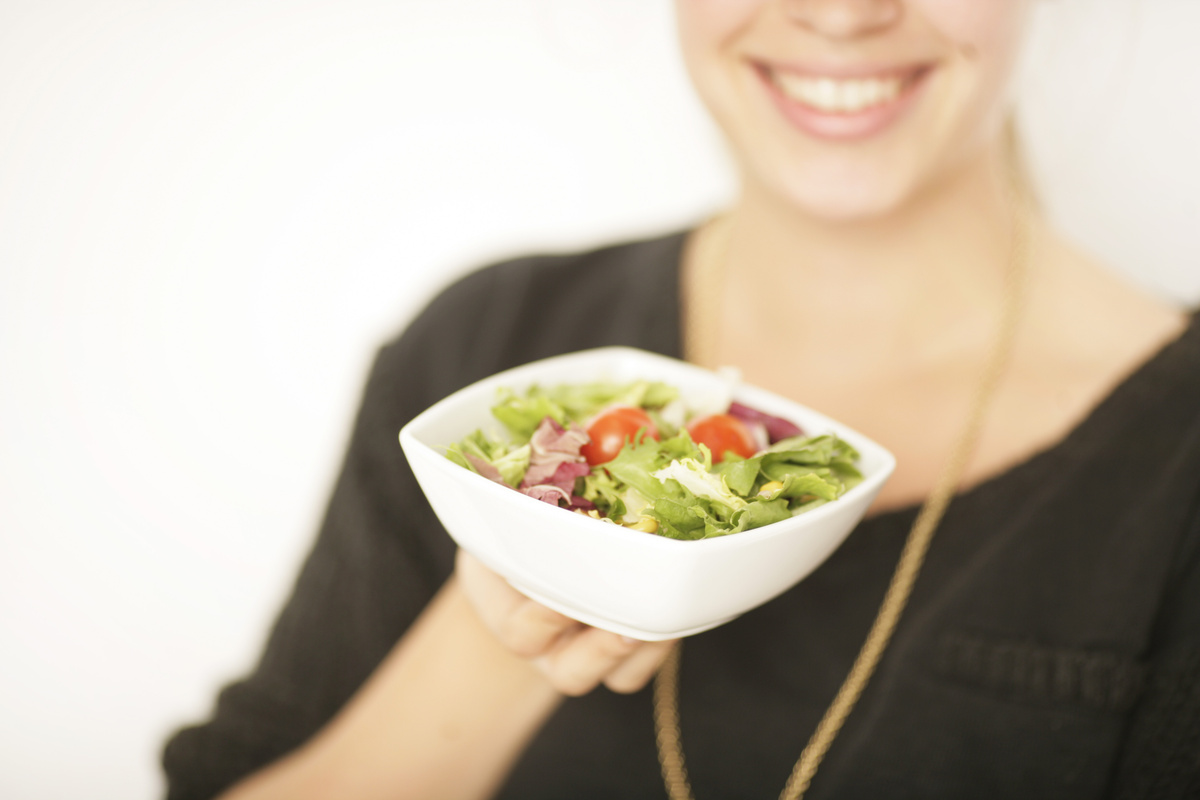Table of contents
General considerations about dietary re-education

Dietary re-education consists of a change in eating habits, as well as behaviors related to the act of eating. In addition to weight loss, it aims to help with issues related to diseases and to preserve health.
Thus, it is possible to state that dietary re-education is quite different from diets. Although many people still confuse the two things, in addition to the functions, the two are different in terms of the restrictions imposed. In this sense, diets tend to be more restrictive and more difficult.
Want to know more about dietary re-education before you start the process? Keep reading the article to get all the information!
What is dietary re-education, how to start and difference to diets

The dietary re-education requires the monitoring of a professional, the nutritionist, who will be responsible for developing a detailed plan taking into account the daily needs of each person in terms of nutrients. In addition, the nutritionist also considers issues such as age and reality of their patients.
Below, more details about the dietary re-education, as well as the differences between this process and diets will be commented. To learn more, continue reading.
What is dietary re-education
In general terms, dietary re-education can be described as a change in eating habits. However, it is a more comprehensive process, since patients must also undergo a change in mentality and behaviors related to food.
Moreover, although many people think that the purpose of dieting is only weight loss, this information is not true. It can help in the control of diseases and also in maintaining health since it encourages a healthier and more regulated diet.
Where to start
The first step to start the process of dietary re-education is to look for a nutritionist, the professional responsible for drawing up the plan that will be followed during this process. In addition, the nutritionist will also be responsible for explaining in more detail that changing the diet does not mean imposing restrictions on food.
So, the process must start by understanding everything that is involved in dietary re-education and also the organizational and routine issues for it to work properly and bring the expected benefits.
Be patient
In addition, it is important to consult a nutritionist because he will be able to explain that to have an effective process of dietary re-education you need to be patient. This applies especially to the case of people who want to lose weight. As it is not something that imposes strict restrictions, weight loss becomes slower.
So, it is necessary to have patience to undergo dietary re-education because there is no magic formula. Even the miracle recipes promised by diets tend to have a rebound effect, which means that all the weight lost is recovered some time later.
How to maintain the dietary re-education
To be able to maintain the dietary re-education is necessary to keep in mind that the benefits brought by it are not merely aesthetic. So, you will not go through this process just to improve your self-esteem. The re-education goes through health issues and, thus, your body as a whole will benefit.
In addition, an interesting tip is to always have around the foods that are part of the menu prepared by the nutritionist, which involves organization and advance preparation, but ensures that the indications will be followed and the results will come.
What is the difference between dietary re-education and dieting?
The main difference between dieting re-education and dieting is in the issue of restriction. While diets tend to eliminate caloric foods, such as carbohydrates and sugars, to accelerate weight loss, dieting re-education changes the relationship of people with the act of eating.
It is also worth mentioning that very restrictive diets are not always beneficial for the body. Thus, some depend on vitamin supplementation so that the body does not feel the damage. However, in the case of reeducation, as it is prepared by a professional, health is always in first place.
Friendly, accelerating, moderate and sabotaging foods

There are some foods that are able to work as allies during the process of dietary re-education. In addition, others have the power to accelerate this process. And, of course, there are others that completely sabotage the achievements of those who are going through a re-education.
Therefore, it is important to know them well before you start. See below for more details about the friendly foods, accelerators, moderators and saboteurs of the dietary re-education!
Friendly foods
The weight loss process is different for each organism and is conditioned to a series of factors, ranging from the enzymes present in the stomach to genetic predisposition issues. However, there are some categories of foods that are proven friends of the dietary re-education.
In this sense, it is possible to highlight foods rich in fiber, which spend more energy during digestion. In addition, citrus fruits have a thermal effect, which is positive, and vegetables can help especially when they are eaten raw.
Accelerator foods
The foods that are known as accelerators in the process of family re-education act directly on the metabolism, which transforms the food consumed into energy. However, it is important to remember that each body responds in a different way, so that the nutritionist is the one who should assess regarding this consumption.
Thus, among the main accelerator foods is possible to mention the lentil, rich in iron and minerals; the pepper, which has capsaicin; the breast and turkey, due to its low calorie content and nuts, which are sources of good fats.
Moderate foods
There are some foods that have good amounts of nutrients. However, they should have their consumption controlled by people who are in the process of dietary re-education due to some harmful substances for weight loss.
Among them it is possible to highlight coffee, which should not exceed 400 ml/day; chocolate, which should be prioritized in its 70% cocoa version; and carbohydrates in general, which should not exceed 6g daily so that a good diet is maintained. In the case of carbohydrates, one should count them to maintain the highlighted indexes.
The sabotaging foods
Some foods are pointed out by common sense as beneficial to dietary re-education. However, this is a fallacy and, in fact, they can sabotage the process if the goal is weight loss. Against this it is possible to highlight the example of granola and cereal bars, both seen as healthy foods.
However, in some cases, both have very high levels of sugar and high caloric value, which hinders weight loss and can bring more harm than good. The most suitable is to make your own granola at home.
The benefits of dietary re-education

Dietary re-education does not only help in the weight loss process. It is beneficial for several areas of life, reducing the risk of diseases, controlling body fat and improving sleep quality.
As a result, people who go through this process have an improvement in their quality of life. Want to know more about the benefits that dietary re-education can bring to your life? Read the next section of the article!
More quality of life
Diet has the power to influence the quality of life as a whole. This happens because depending on the food consumed, people can feel more or less willing. Therefore, changing habits can modify the willingness to exercise and also to engage in other activities, even those aimed at leisure.
In addition, dietary re-education can help to strengthen the self-esteem of people who have image problems because they do not feel comfortable with their own body.
Body fat control
As the foods that bring bad fats are replaced by healthier sources in the dietary re-education, the process also helps in the sense of body fat control. Then, a series of issues are benefited, such as cholesterol, which affects the health of many Brazilians.
In addition, the risk of heart diseases also goes through a decrease, since fat can cause the clogging of veins and lead to heart attacks and other problems of this nature. So, for those who have some kind of predisposition to these diseases, re-education is a good way.
Reducing the risk of disease
A number of diseases can be prevented from dietary re-education. From conditions linked to weight gain itself to more serious problems, linked to the clogging of veins. Therefore, consider starting this process is also a matter of taking care of health as a whole.
It is also worth noting that a healthier diet decreases inflammatory processes in the body and, consequently, improves a number of issues, such as sore throat, for example.
Improved quality of sleep
Although many people do not know this relationship, the quality of sleep is directly linked to food. This happens because it is connected to some diseases, such as obesity. Thus, when someone cannot sleep properly, this should be seen as a symptom.
In view of this, dietary re-education can help to improve this issue because the lack of sleep contributes to increase the desire for sweets. This is linked to the cortisol levels present in the blood, which cause the glucose reserves to be used up.
Professional support and the inclusion of healthier habits in the dietary re-education

Consulting a nutritionist is essential to start the process of dietary re-education in a correct way. Far beyond passing a diet, he will assess a number of issues related to health and maintenance of quality eating habits.
Therefore, the quality of life is directly influenced, enhancing the sense of well-being. Want to know more about it? See below for more information!
Seek professional support for dietary re-education
Seeking the support of a nutritionist is essential to start the process of dietary re-education. A professional in this area, besides helping to develop a correct plan, suitable for each body, also considers issues such as the availability of time of the patient, possible food intolerances and factors such as age and goals.
So, much more than preparing a diet that focuses on weight loss, the nutritionist will evaluate the well-being as a whole to determine the best path for each person in the diet re-education process.
Keep the food in the house organised
Organization is the greatest ally of people who want to do a dietary re-education, but do not have much time. When food is stored in a functional and organized way in the dispensaries, it is easier to visualize what is available and think the food more carefully.
After all, in times of hurry the first impulse is to consume what is visible to satisfy hunger and be able to move on with the day-to-day. So, having an organized pantry that favors your eating habits is something essential.
Prepare snacks in advance
The lack of time is the main reason that makes many people give up the process of dietary re-education. Thus, they end up opting for practicality instead of health. One way to get around this situation is to prepare snacks in advance.
Some people have the habit of using the weekends to organize their entire weekday menu, so they can be sure that they will continue eating healthy and in the right portions even if they have some kind of unforeseen event during the day.
Exercise
Physical exercises are great allies in the process of dietary re-education. They help to enhance the results in terms of weight loss and still make people feel more willing because they release hormones that cause the feeling of well-being.
In addition, a sedentary lifestyle is a very common cause of a number of heart diseases. Therefore, to combat these issues more assertively, it is interesting to combine good nutrition with physical exercise.
Tips for weight loss with dietary re-education

Although dietary re-education depends on a number of factors linked to each person's individuality, there are some tips that can help anyone lose weight while going through this process of changing their relationship with food.
Some are well known, such as eating every 3 hours and others, such as preferring homemade food, are still not so divulged. Want to know what are the tips for losing weight with dietary re-education? See more about it below!
Eat every 3 hours
Having a regulated diet, at regular times, helps to accelerate the metabolism. In addition, this type of behavior keeps hunger regulated throughout the day and, therefore, avoids some excesses and the desire for foods that are outside the dietary plan.
It is also worth mentioning that maintaining these 3-hour intervals can greatly help people dealing with binge eating, since when they spend a long time without eating they are at greater risk of eating more than necessary and making negative choices for dietary re-education.
Drink 2 liters of water per day
Drinking water is beneficial for re-education. It is a non-caloric liquid that keeps the stomach full and thus gives a feeling of satiety. However, it is necessary to follow the recommended amounts of water.
For people who feel difficulty in doing this, it is worth putting a piece of ginger to water. Another resource that can be adopted is to squeeze half a lemon inside a bottle and drink little by little throughout the day. It also proves valid to ingest teas without sugar in addition to water.
Reduce your taste
Taste needs to undergo a re-education. This happens because foods with high caloric value and with the presence of sugars and fats tend to be perceived as tastier. However, this is a matter of habit.
In this way, it is also necessary to review personal tastes in the process of re-education. This does not mean that you will stop consuming and liking everything you liked before. It is about realizing that there are other options that are healthier and just as tasty.
Prefer home-made food
Although ready-to-eat foods, sold in supermarkets and natural products stores, can be a real help in the day-to-day who is going through a process of dietary re-education needs to give priority to homemade food. This happens because they are healthier because they are more natural.
Processed foods go through many processes for longer conservation and contain substances that can slow weight loss, such as sodium, which causes fluid retention.
Reduce sugar
The reduction of sugar can be one of the most complex stages of dietary re-education. However, it is extremely necessary and there are some tips that can facilitate this process. One of them is to eat portions of fresh fruit. The most recommended is to eat a total of three per day.
In general, it is recommended the banana, orange, strawberry and apple when the question is to reduce sugar consumption. Besides being naturally sweeter, they are still rich in fiber, which causes the feeling of satiety and promotes weight loss.
Eat mindfully
The dietary re-education process depends on an adjustment of mentality to work. Who chooses this form of weight loss needs to eat more consciously to realize concrete results. Thus, it is important to inform yourself about nutritional information and the best times of day to eat each food.
In addition, a difficulty that many people face are the social situations, which usually do not have healthy options. However, it is not necessary to give up this type of social interaction for the sake of re-education, but to have a healthier relationship with food and consume unhealthy foods in smaller portions.
What not to do when trying to lose weight with dietary re-education

There are some myths related to dietary re-education that can significantly hinder the process. Therefore, it is important to have this kind of knowledge to avoid falling into fallacies, since these are reproduced in profusion in spaces like social networks. Want to know more about what not to do to lose weight with dietary re-education? See below!
Long periods of fasting
Long periods of fasting do not work with dietary re-education, since it depends on getting the body used to smaller portions and healthy foods in shorter periods. Therefore, some widespread practices, such as intermittent fasting, should be avoided by those who are going through this process.
Although this type of diet works in some contexts, this is not the case in diet re-education because the proposals are antagonistic. So, do not try to combine the two techniques to lose weight faster.
Dietary restrictions
The imposition of food restrictions is also a very common mistake. Try to think that if they are not made by the nutritionists responsible for preparing your re-education plan, they do not need to be done on your own. You have to trust those who have knowledge about the area and know what will be best received by your body.
Besides that, restrictions can trigger anxiety situations. By not being able to consume some food, the individual becomes fixated on the idea that he needs it and, then, while he does not consume what he wants, he cannot calm down.
Few hours of sleep
During sleep, the body carries out a series of important processes to maintain health and to regulate metabolism and weight. Therefore, sleeping a few hours is something that hinders weight loss. The ideal number of hours of sleep for an adult human being is 8h.
Although there are people who feel good with fewer hours, this analysis should be done together with a professional. Remember that not sleeping enough can affect other areas of your health and not only your weight loss.
Eating while doing other activities
The act of eating needs to be re-signified by those who go through a dietary re-education and it is necessary to create a relationship with food that is as healthy as the food consumed. Thus, eating while performing other activities is not recommended since it is possible to lose control of the ideal portions.
Therefore, the most suitable is to take a period of the day to create a routine linked to food and try to do this without major distractions.
Chewing the food too little
Although chewing may not seem important for weight loss, this is wrong. It is indicated to chew food well because it facilitates the increase of time between meals and makes the brain understand that the stomach is full. With this, it becomes easier to stop eating when necessary.
This simple practice helps to contribute to the control of hunger and, therefore, helps in the process of weight loss. Therefore, a tip to achieve chewing enough is to pause the cutlery on the plate between one fork and another.
Is it possible to lose weight permanently through healthier habits and dietary re-education?

It is necessary to keep in mind that no form of weight loss can be considered definitive, since it depends on the individual willingness to maintain the habits acquired during the period of dietary re-education. Thus, even if you finish the weight loss process, the habits need to be cultivated throughout life.
Otherwise, eventually the brain will unlearn everything that was taught during this period and the weight may end up coming back. Even, some people suffer from the so-called rebound effect, which represents an even greater gain than the weight they had in the first moment.

